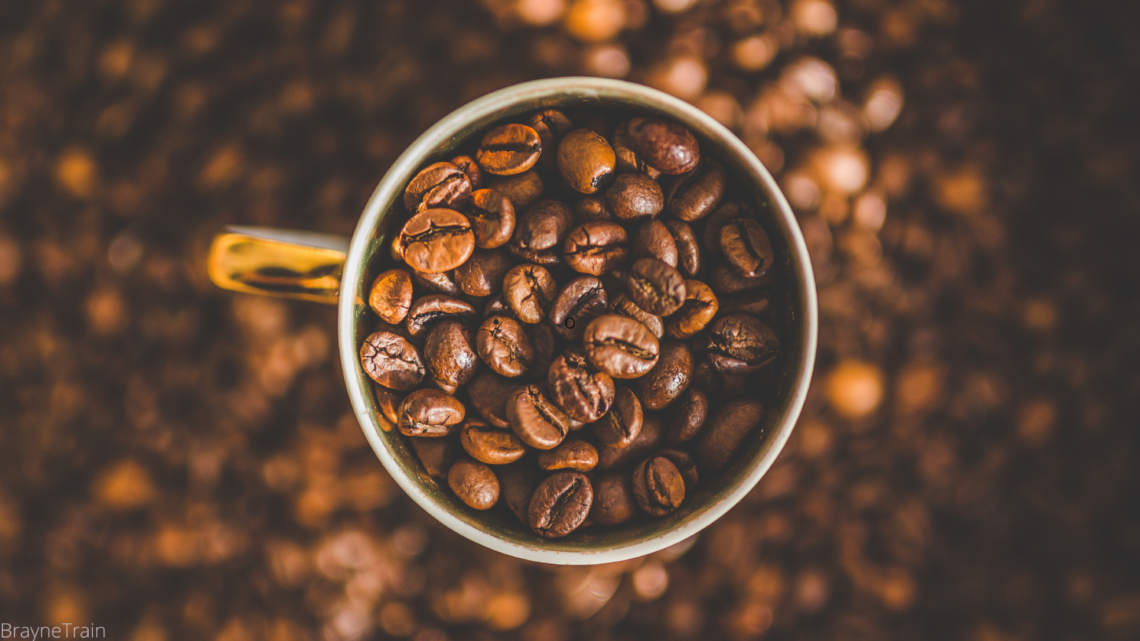
Is Coffee Healthier Than Energy Drinks?
Caffeine is the most popular drug in the world and the kind we can all get behind, however, not all caffeinated drinks are created equal.
Energy drinks such as Red Bull or Monster drink have caffeine, and so does a black cup of coffee, but which one is healthier for you?
Scientific studies strongly indicate that black coffee is healthier than energy drinks. Coffee’s benefits include enhanced physical performance, better focus, improved memory, and reduced risk of heart disease. However, there is no scientific evidence that supports any potential benefits of energy drinks.
In this post, we have gathered all the scientific data that proves coffee is better for you than energy drinks, so continue reading to find out!
| Caffeine | Sugar | Calories | sodium | Main Ingredients | |
| Black Coffee (8oz) | 95mg | None | 2.4 calories | 5mg | Coffee |
| Red Bull (8.4 oz) | 80mg | 27g | 110 calories | 105mg | Caffeine, Sucrose, Glucose, Citric acid, Taurine, and Synthetic B-vitamins. |
| Monster (16 oz) | 160mg | 54g | 210 calories | 370mg | Caffeine, Ginseng, Glucose, Guarana, Maltodextrine, Taurine, Synthetic B- Vitamins. |
| Rockstar (16 oz) | 160mg | 63g | 270 calories | 70mg | Caffeine, Taurine, Synthetic B-Vitamins, Ginseng, Guarana, Glucose Syrup, Sugar. |
| 5-Hour Energy(1.93oz) | 200mg | 0g | 4 calories | 15mg | Caffeine, Synthetic B-Vitamins, Tyrosine, Taurine, Malic Acid, Natural & Artificial Flavors, Sucralose. |
Why is Coffee Better?
It’s no secret that coffee is a staple in many people’s lives, and numerous scientific studies have proven the many benefits of black coffee.
Some of these benefits include no sugar, low calorie (2.4 calories), triggers no insulin spikes (no weight gain), and has no synthetic ingredients.
In addition, coffee is a great source of natural antioxidants, and Vitamins B2, B3, and B5.
Energy drinks, on the other hand, have high amounts of sugar in addition to caffeine and many artificial ingredients that are unhealthy for you.
But that’s not all, black coffee has many more important health benefits that we are going to go over now.
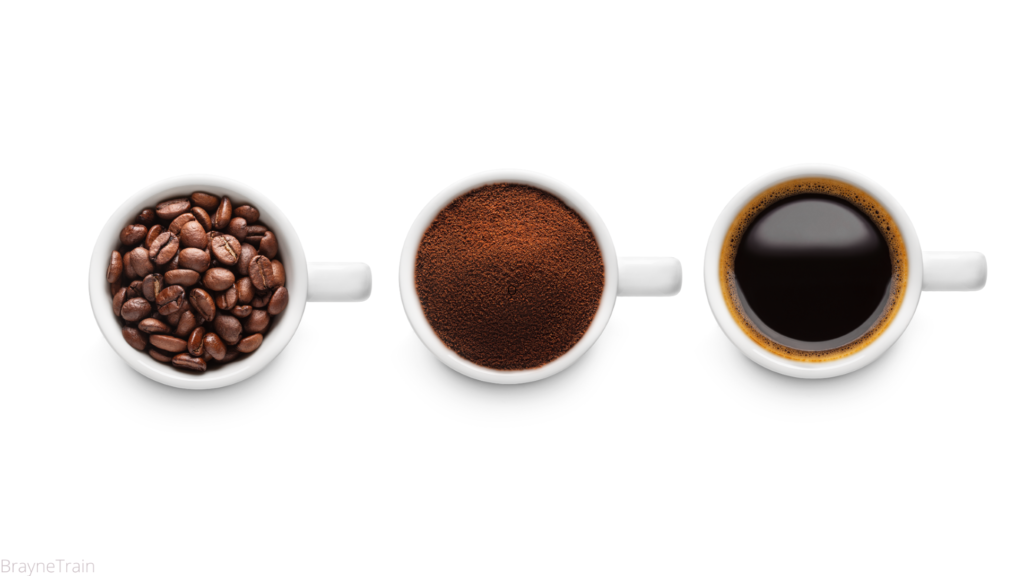
Mental Performance
- Improves Mood
- Harvard University conducted a study on 50,000 participants who consumed coffee, over a ten-year period.
- The study concluded that the risk of depression decreased in a dose-dependent matter among participants. This means the more coffee consumed, the less chance of depression and the better mood the participants were in.
- Lower Chance of Depression
- A 2016 meta-analysis of 12 studies concluded that 300 mg of caffeine (3-4 cups of coffee) could be helpful for people suffering from depression.
- Increased Alertness
- A study that was done on 20 male participants that showed only 32mg of caffeine (½ cup of coffee) increased their awareness of their surroundings, and visual reaction time, which means increased alertness.

- Enhanced Reaction Time
- A study was done in 2013 that took a look at 66 double-blind placebo trials and concluded that caffeine has clear beneficial effects on attention. Also, caffeine improved the reaction time and accuracy of many simple tasks.
- Increased Attention and Focus
- The European Food Safety Authority reviewed 22 studies that showed a cause-and-effect relationship between caffeine and attention.
- The study indicated that just 75mg of caffeine (about 1 cup of coffee) increases attention and alertness.
- They also concluded that caffeine increases both selective attention, which is focusing on one task at a time, and sustained attention; focusing on things for an extended amount of time.
- Improves Memory and Recall
- A 2009 study showed caffeine could improve both true and false memory.
- Enhanced Memory Consolidation
- A study done at John Hopkins University in 2014 indicated caffeine can improve memory consolidation.
- The study showed that 200mg of caffeine ( 2 cups of coffee) helps enhance long-term memory formation.

Coffee Enhances Physical Performance & Stamina.
- Caffeine increases adrenaline.
- Coffee can help increase energy by increasing adrenalin, resulting in enhanced physical performance.
- Coffee helps increase performance time.
- There is evidence that caffeine consumption can enhance the amount of time you can exercise.
- Coffee reduces the perception of tiredness.
- A meta-analysis by The Journal of European Food Safety Authority in 2015 concluded that coffee could reduce the perception of tiredness during exercise.
- Coffee helps post-workout recovery.
- A study at the University of Illinois concluded that coffee consumption could help speed up recovery after exercise.
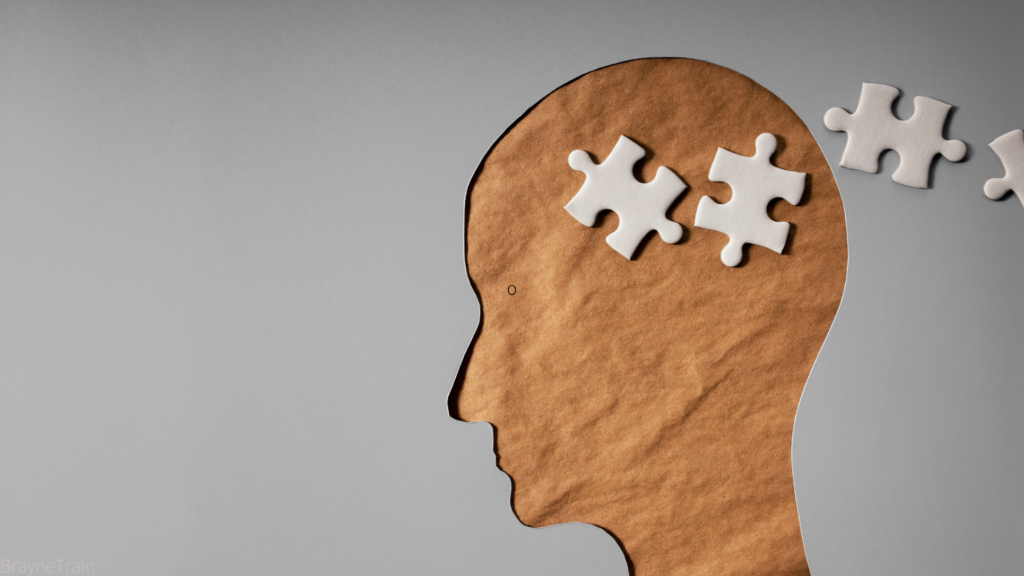
Reduced Risk for Ceratin Disease.
Coffee is a natural source of B2, B3, and B5 Vitamins and is a great source of antioxidants.
Some studies indicate that coffee consumption results in the reduction of long-term health problems.
- Reduced Risk of Parkinson’s Disease.
- A systematic review of 26 studies indicated that consuming 300mg of coffee daily lowers the chance of Parkinson’s disease by 32%.
- Reduced Risk of Alzheimer’s and Dementia.
- A study was done in 2010 that took a look at 1409 individuals between the ages of 65-79 for over 21 years.
- The study showed that coffee consumption decreased the chance of Alzheimer’s disease and dementia in the elderly.
- Drinking 3 to 5 cups of coffee per day correlated with a lower risk for dementia and Alzheimers in the elderly by 65%.
- Reduced Risk of Type 2 Diabetes.
- A meta-analysis done in 2018, studied over 1 million people and concluded that the risk of type 2 diabetes decreased by 6% for each cup of coffee drank per day.
- And those who drank 5 cups of coffee reduced their chance of type 2 diabetes by 29%.
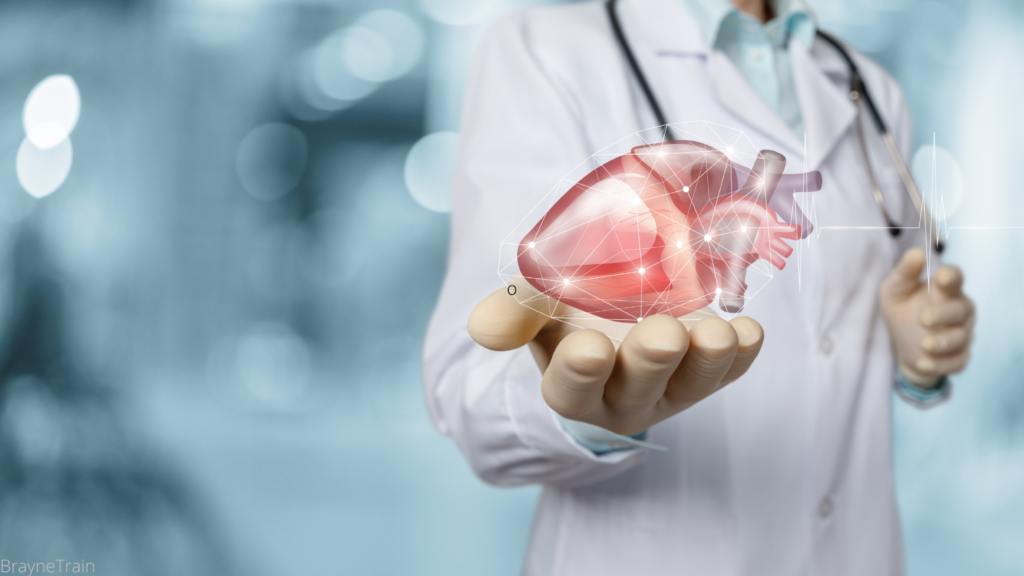
- Reduced Risk of Heart Disease.
- A review done in 2017 concluded that moderate coffee consumption can decrease the risk of cardiovascular disease and drinking 3-5 cups of coffee daily reduced cardiovascular disease risk by 15%.
- Reduced Risk of Stroke.
- A meta-analysis was done in 2011 that looked at 11 studies with over 450,000 participants.
- The study showed that drinking 2 cups of coffee reduced the risk of stroke by 14%
- And drinking 3 cups reduced the risk of stroke by 17%.
- Reduced Risk of Liver Cancer.
- A study found an inverse relationship between drinking coffee and the chance of developing liver cancer.
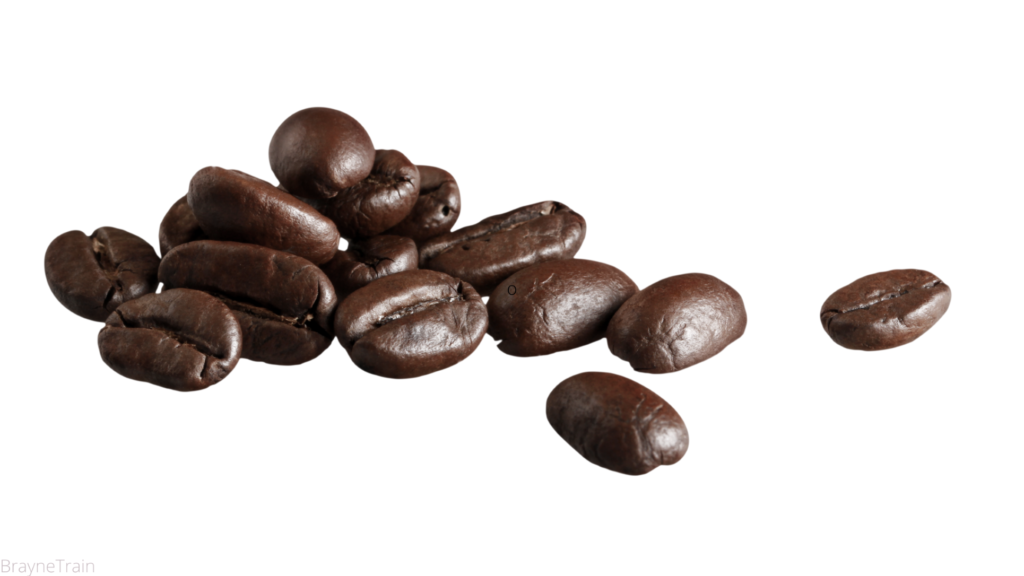
Side Effects of Coffee:
It is important to note, that despite all its amazing health benefits, drinking too much coffee can have certain side effects.
- Drinking too much coffee can result in restlessness, anxiety, and nervousness.
- Also, drinking coffee too late in the day, three to six hours prior to sleep, can negatively impact sleep quality.
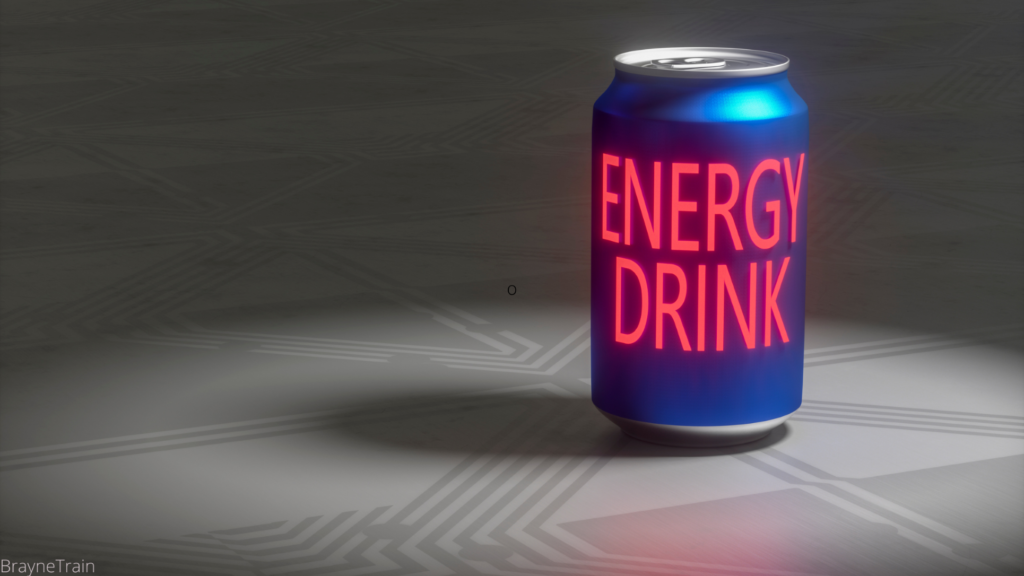
Why are most energy drinks unhealthy?
High Amounts of Sugar and Fructose
Most energy drinks contain incredibly high amounts of sugar and fructose corn syrup.
Fructose corn syrup is the less expensive and unhealthier version of natural sugar and it results in insulin resistance, weight gain, and other health problems.
Also, fructose does not go to the muscle; it goes directly to the liver and is stored as fat.
Do not provide Actual Energy.
Energy drinks do not provide actual energy. They create the illusion of a short-lived energy boost that is not sustainable.
Energy drinks are stimulants, and stimulants are the equivalence of a slap in the face.
The high amounts of caffeine combined with sugar and other added ingredients such as Ginseng, Taurin, and Guarana (a form of caffeine), gives you the perception of energy.
Also, a stimulant does not help improve your physical or mental performance.

Sugar Crash
The high amounts of sugar in energy drinks will give you a temporary rush of energy as the insulin spikes; however when the insulin levels drop it will result in a sugar crash.
When your blood sugar crashes, you feel tired, sad, and irritable, and you will crave more energy drinks to get you your next hit or “boost of energy.”
This becomes a vicious cycle that never stops and can turn into an addiction.
Risk of Heart Attack
Scientific studies indicate that energy drinks have been linked to several health problems, including abnormal heart rhythm, heart attack, and sudden cardiac arrest.
About 30% of Americans ages 12 through 17 regularly consume energy drinks, which has been linked to increased emergency room visits and death.
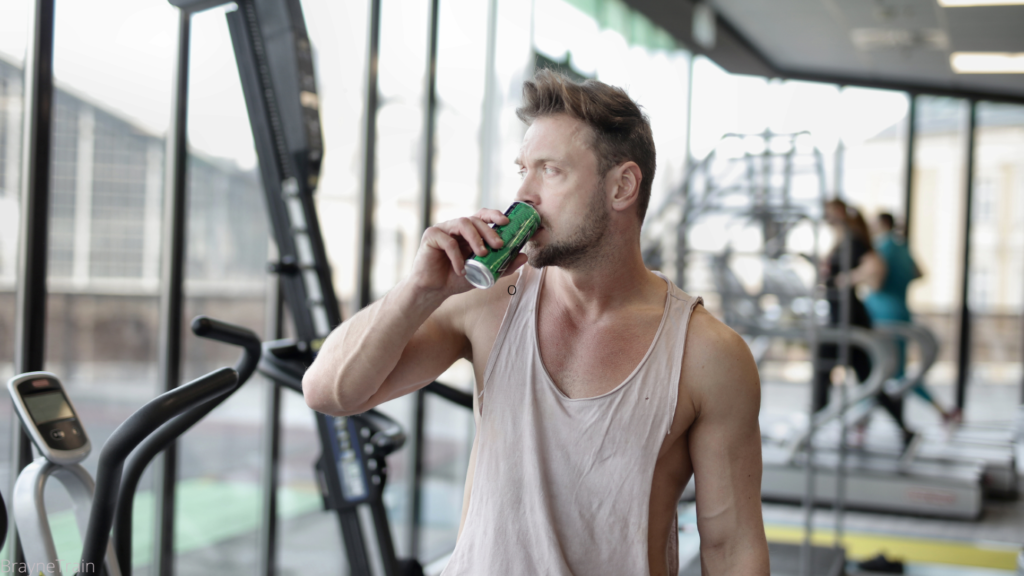
How many Energy Drinks a day is healthy?
Drinking one or two energy drinks per day is generally considered safe, and it will not cause significant harm if you are healthy and have no underlying medical conditions.
However, research has indicated that even one energy drink may cause the blood pressure to rise and the blood vessels to constrict.
A 2018 study by the University of Texas Health Science Center in Houston found that having just one energy drink affected the blood flow through the arteries.
They believe that the negative effect is likely related to the combination of ingredients in the energy drinks, such as caffeine, taurine, sugar, and other synthetic add-ons.
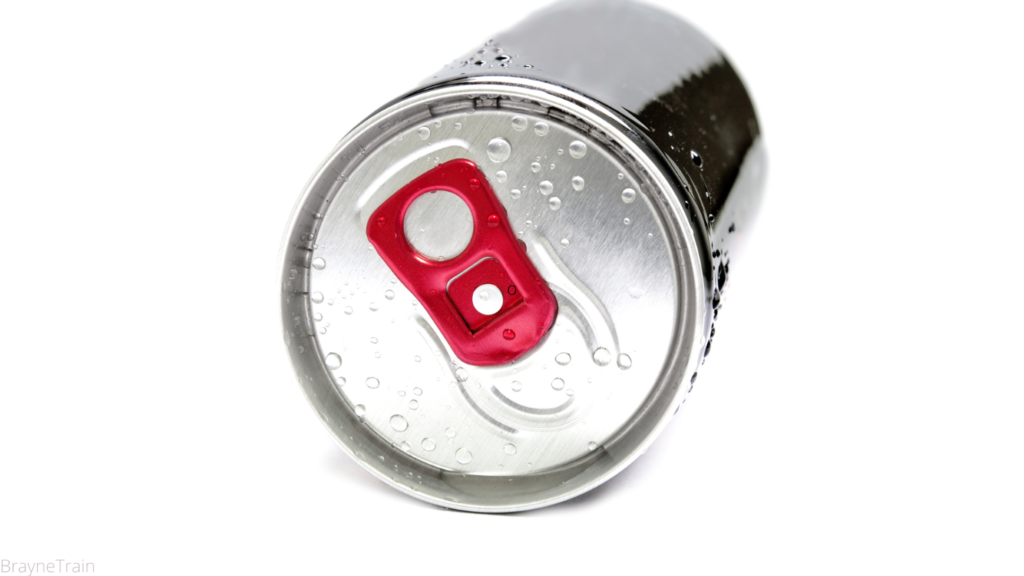
Do energy drinks have health benefits?
There is little to no scientific evidence that supports the potential health benefits of energy drinks.
Some claim that ingredients like ginseng and taurine added to energy drinks have health benefits.
However, A Review by The Journal of the American Pharmacists Association concluded that “The amounts of guarana, taurine, and ginseng found in popular energy drinks are far below the amounts expected to deliver either therapeutic benefits or adverse events. However, caffeine and sugar are present in amounts known to cause a variety of adverse health effects.”
Other Negative Side effects of Energy Drinks:
- High blood pressure
- Acne
- Weight gain
- Inflammation
- No enhancement of athletic performance
- Insomnia
- Dizziness
- Addiction
Takeaway
If you are looking for an energy boost, a cup of black coffee is far superior to any energy drink. Drinking black coffee, in moderation, has benefits such as enhanced mental performance and increased physical stamina. So next time you need a little extra energy boost, instead of reaching for a red bull, make yourself a cup of coffee and enjoy it. Believe us, you are doing yourself a service you won’t regret. Thank you for reading!
References:
- Jahrami H, Al-Mutarid M, Penson PE, Al-Islam Faris M, Saif Z, Hammad L. Intake of Caffeine and Its Association with Physical and Mental Health Status among University Students in Bahrain. Foods. 2020;9(4):473. Published 2020 Apr 10. doi:10.3390/foods9040473
- Nadeem IM, Shanmugaraj A, Sakha S, Horner NS, Ayeni OR, Khan M. Energy Drinks and Their Adverse Health Effects: A Systematic Review and Meta-analysis. Sports Health. 2021 May-Jun;13(3):265-277. doi: 10.1177/1941738120949181. Epub 2020 Nov 19. PMID: 33211984; PMCID: PMC8083152.
- Clauson KA, Shields KM, McQueen CE, Persad N. Safety issues associated with commercially available energy drinks. J Am Pharm Assoc (2003). 2008 May-Jun;48(3):e55-63; quiz e64-7. doi: 10.1331/JAPhA.2008.07055. PMID: 18595815.
- Lieberman HR, Wurtman RJ, Emde GG, Roberts C, Coviella IL. The effects of low doses of caffeine on human performance and mood. Psychopharmacology (Berl). 1987;92(3):308-12. doi: 10.1007/BF00210835. PMID: 3114783.
- Lucas M, Mirzaei F, Pan A, et al. Coffee, caffeine, and risk of depression among women. Arch Intern Med. 2011;171(17):1571-1578. doi:10.1001/archinternmed.2011.393
- Einöther SJ, Giesbrecht T. Caffeine as an attention enhancer: reviewing existing assumptions. Psychopharmacology (Berl). 2013 Jan;225(2):251-74. doi: 10.1007/s00213-012-2917-4. Epub 2012 Dec 16. PMID: 23241646.
- Capek S, Guenther RK. Caffeine’s effects on true and false memory. Psychol Rep. 2009 Jun;104(3):787-95. doi: 10.2466/PR0.104.3.787-795. PMID: 19708406.
- Capek S, Guenther RK. Caffeine’s effects on true and false memory. Psychol Rep. 2009 Jun;104(3):787-95. doi: 10.2466/PR0.104.3.787-795. PMID: 19708406.
- Costill DL, Dalsky GP, Fink WJ. Effects of caffeine ingestion on metabolism and exercise performance. Med Sci Sports. 1978 Fall;10(3):155-8. PMID: 723503.
- https://doi.org/10.1161/JAHA.118.011318Journal of the American Heart Association. 2019;8:e011318



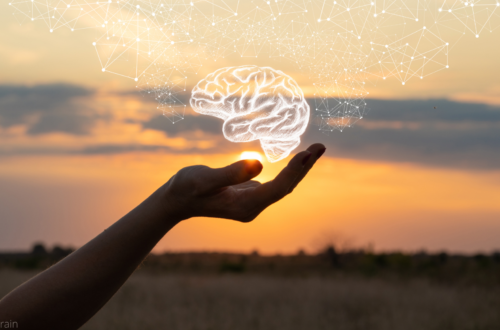

One Comment
Pingback: